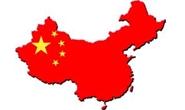Government/Policy

April 13, 2017
China CTL Circumvention Inquiry Rescinded by Commerce
Written by John Packard
Commerce issued an order on Wednesday to rescind the circumvention inquiry on imported Chinese cut-to-length steel plate containing alloying elements that was initiated on February 10, 2016. The inquiry is to be rescinded as of April 12, 2017.
With antidumping and countervailing duties just issued in March 2017 on CTL from China, this notice from the International Trade Commission was confusing. Steel Market Update looked to trade attorney Lewis Leibowitz for clarification.
Leibowitz told us, “The scope of the new Chinese orders includes “alloy” steel (steel with certain alloying elements above stated percentages). Because the circumvention inquiry dealt with alloying elements, it became moot because imports are now subject to antidumping and CVD orders.”
Leibowitz said other circumvention cases could also become moot over the next several months as well. He cited the Vietnam circumvention case as an example.
“The Vietnam circumvention case, for example, has languished without any progress for several months now,” said Leibowitz. “If AD/CVD petitions are filed on cold rolled and corrosion resistant steel from Vietnam, the circumvention inquiry would become moot once Vietnamese products were subject to duties on their own.”
It is nice to have a knowledgeable source to go to when issues on trade come up. If you are not as fortunate as Steel Market Update, you will have a chance to hear Lewis Leibowitz and others discuss trade issues at this year’s SMU Steel Summit Conference in Atlanta, GA on August 28-30th. Details about the conference, speakers, fees and registration can be found on our website: www.SteelMarketUpdate.com/Events/Steel-Summit







